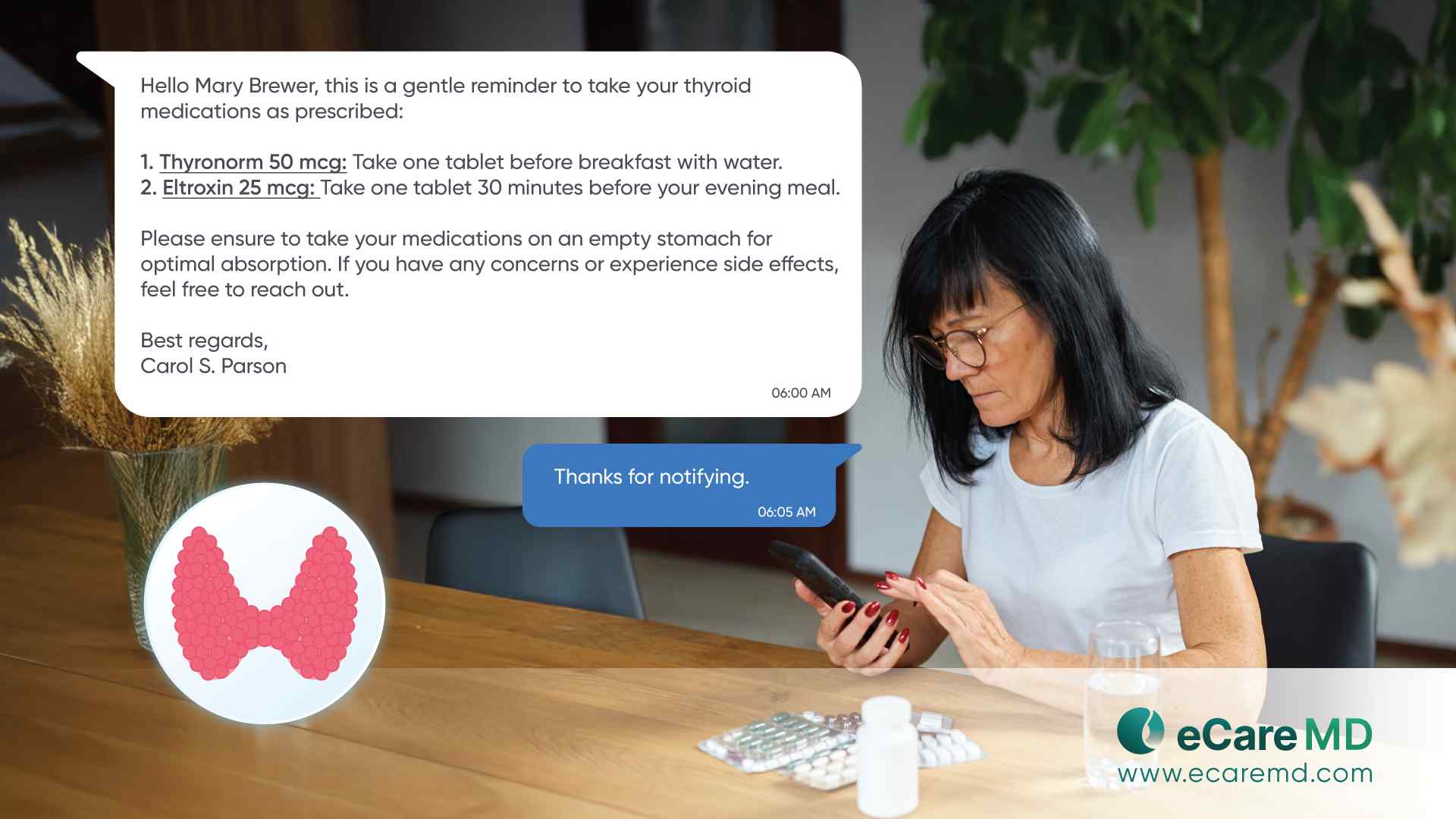Client Overview
The client specializes in endocrinology, having a multi-specialty clinic based in Maryland, particularly managing thyroid disorders such as hypothyroidism and hyperthyroidism. The client has managed more than 6000 patients with thyroid disorders by providing comprehensive care. The client has gained significant popularity in the nearby region for their dedication, willingness, and commitment to obtaining expected patient health outcomes by delivering enhanced quality of care.
Business challenges
The clinic faced several challenges in effectively managing thyroid disorders:
1. Inconsistent Monitoring of Thyroid Levels
Patients with thyroid disorders require regular monitoring of their thyroid-stimulating hormone (TSH) levels. Due to the lack of real-time monitoring functionality when the patient is at home, the client was unable to track the patient’s real-time thyroid-stimulating hormone levels when the patient is at home health outcomes.
2. Medication Adherence
Managing the patient’s thyroid requires a prolonged duration. Hence, it is necessary for the patient to take medication for such a long time. Non-adherence of the patient to the prescribed medication and treatment plan was a significant challenge for the client.
3. Patient Education and Engagement
Unawareness of patient about their health and chronic condition as well as the importance of following the treatment plan. It affects the patient’s health outcomes. Educating these patients was a significant challenge for the client.
4. Increased patient hospital readmission rates
The client has experienced a higher patient hospital readmission rate than expected. This increased patient hospital readmission rate has put a strain on care providers to manage more patients with fewer staff.
Solution
To overcome the challenges, the client has approached Medarch Inc. for eCareMD software. Our team of business analysts and subject matter experts took multiple calls with clients. After a demonstration of the eCareMD software, the client confirmed that the software would resolve all challenges and streamline their practice operations. After receiving approval from the client, our team implemented eCareMD software in the client’s practice.
Key components of the solution included:
1. Continuous Monitoring of Thyroid Levels
The eCareMD software has significantly addressed the challenge of inconsistent monitoring of thyroid levels. It is integrated with the thyroid monitoring devices, which continuously measure the patient’s thyroid levels at home and transmit the readings in real-time to the care provider's eCareMD dashboard,The care provider can see the fluctuations and trends in the patient’s thyroid levels in real-time and make interventions if any vital goes beyond threshold levels.
2. Automated Medication Reminders

Adhering to the prescribed medication plan is a key to obtaining expected patient health outcomes. The eCareMD software enabled care providers to customize reminders hourly, weekly, and monthly in the push notification, email, and SMS formats. This functionality helped care providers engage the patient with the treatment plan and increase their medication adherence.
3. Patient Education Tools
The eCareMD software enabled care providers to assign educational materials to the patients in documents, video/audio files, etc. These educational materials helped patients learn about their chronic conditions and the benefits of following lifestyle recommendations such as diet, sleep, exercise routines, etc. This functionality played a crucial role in improving the patient health outcomes.
4. Alerts and Notifications
The care provider can track the fluctuations and trends in patient health in real-time. If the vital goes beyond the threshold levels, the system generates an alert and notifies the care provider. The provider makes the necessary interventions based on the alert received. These early interventions resulted in a reduction in patient health complications and hospital readmissions.
Value Delivered
The implementation of the RPM program led to significant improvements in the management of thyroid disorders at the clinic:
1. Improved patient health outcomes
The feature of real-time patient health monitoring has helped providers deliver enhanced quality of care by making necessary interventions and modifications to the treatment plan.
2. Enhanced Medication Adherence
With the help of medication reminders, the patient's medication adherence has increased by 30%.
3. Increased Patient Engagement
Patient engagement has significantly increased with the help of the secure communication channels of the eCareMD software.
4. Fewer Complications and Hospital Visits
The real-time alert notification system helped in reducing the patient hospital readmission rate as the care providers were able to make the necessary interventions on time.

